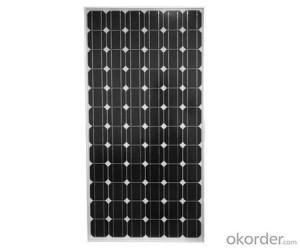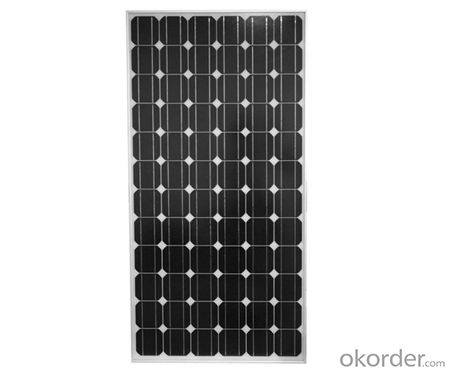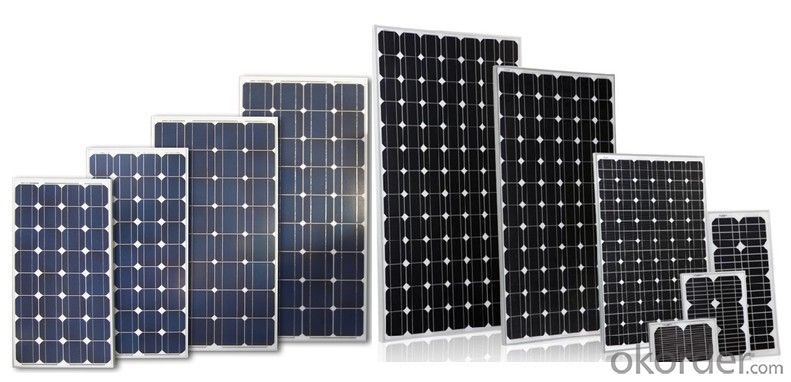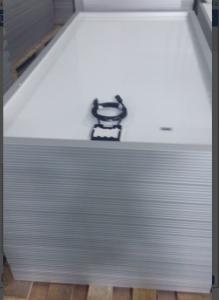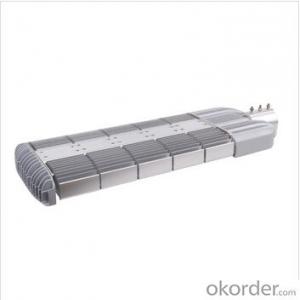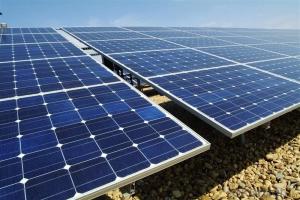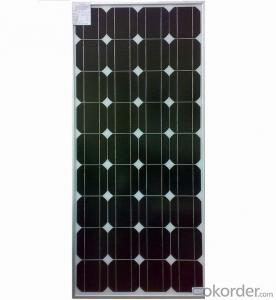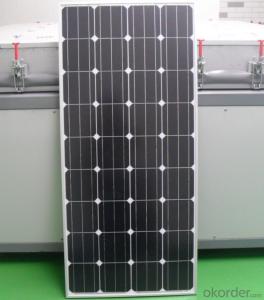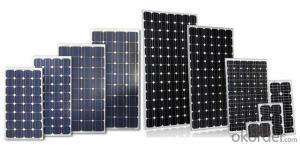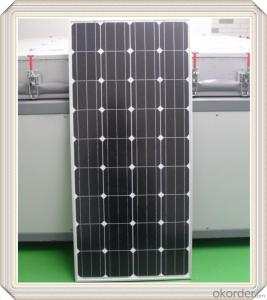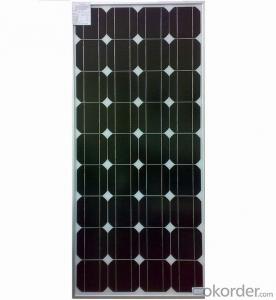Harbor Freight 270w CNBM Solar Monocrystalline Series (250w—270w) Solar Panels
- Loading Port:
- China main port
- Payment Terms:
- TT OR LC
- Min Order Qty:
- 10000 watt
- Supply Capability:
- 500000 watt/month
OKorder Service Pledge
OKorder Financial Service
You Might Also Like
Specification
CNBM Solar Monocrystalline Series III (250W—260W)
Characteristics
Max Power Voltage Vmp(V) | 30.1 | 30.2 | 30.4 | ||
Max Power Current Imp(A) | 8.32 | 8.44 | 8.55 | ||
Open Circuit Voltage Voc(V) | 37.5 | 37.6 | 37.7 | ||
Short Circuit Current Isc(A) | 8.87 | 8.99 | 9.10 | ||
Max Power Pm(W) | 250 | 255 | 260/265 | ||
Temperature Coefficient of Cells
NOCT | 45℃±2℃ | |
Temperature Coefficients of Isc (%/℃) | - 0.0492 | |
Temperature Coefficients of Voc (%/℃) | – 0.3374 | |
Temperature Coefficients of Pmp (%/℃) | –0.4677 | |
Mechanical Data
Dimension | 1638 x 982 x 40 mm | |
Weight | 19.5kg | |
No. of Cells and Connections | 60 (6 x 10) | |
Tolerance | 0~+5W | |
Cell Monocrystalline Cell | 156 x 156 mm | |
Packing | 700 Pcs/40ft(H) Container | |
Limits
Operating Temperature | –40 °C to +85°C | |
Storage Temperature | –40 °C to +85°C | |
Max System Voltage | 1000VDC(IEC) / 600VDC(UL) | |
IV Curve
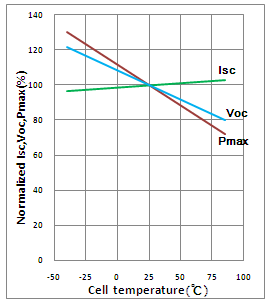
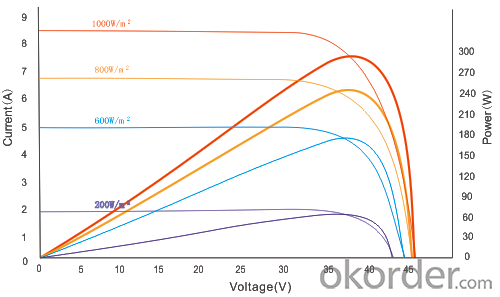
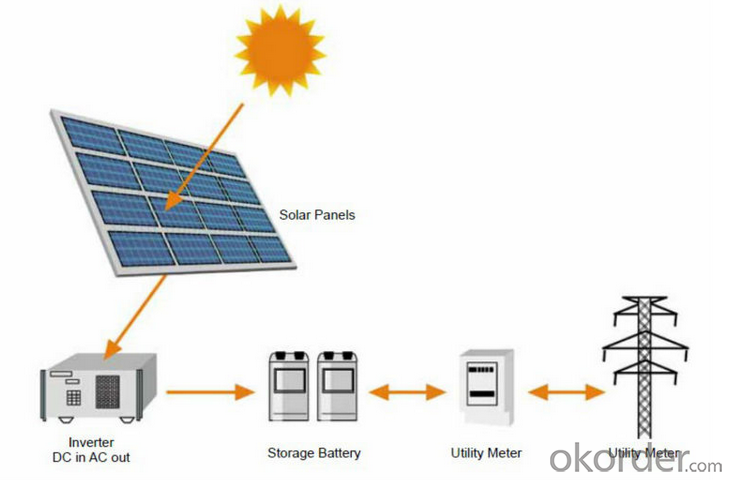
Image
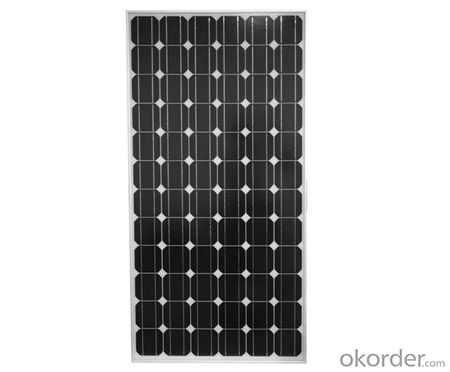
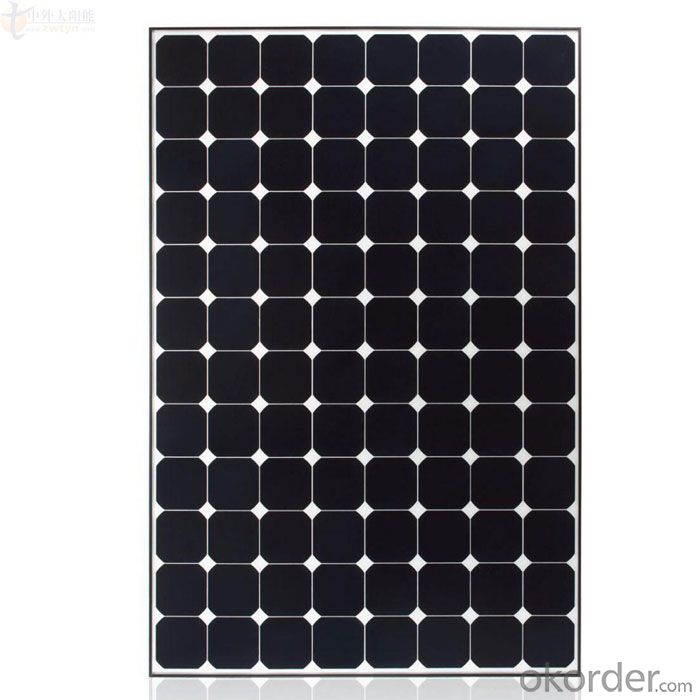
Guarantees
Products Guarantee 12 yrs free from defects in materials and workmanship
Performance Guarantee No less than 90% within 10yrs and no less than 80% within 25yrs
Certificates TUV (IEC61215&IEC61730), VDE(IEC61215&IEC61730), UL, CE
FAQ
1. Q: Do you have your own factory?
A: Yes, we have. Our factory located in Jiangsu province.
2. Q: How can I visit your factory?
A: Before you take off from your country, please let us know. We will show you the way, or arrange time to pick you up if possible.
3. Q: Do you provide free sample?
A: Usually we do not offer free sample
4. Q: Could you print our company LOGO on the nameplate and package?
A: Yes, we can do that.
- Q: What is the difference between monocrystalline and polycrystalline solar panels?
- Monocrystalline solar panels are made from a single crystal structure, resulting in higher efficiency and performance but at a higher cost. Polycrystalline solar panels are made from multiple crystal structures, which lowers their efficiency slightly but also reduces their cost.
- Q: how much energy or electricity a solar panel produces?
- That okorder / They helped me a lot when I was pursuing solar. They will provide you with a free solar quote and give you all the information you need regarding eligible incentives, a feasibility analysis, your estimated annual savings, payback period, and return on investment. All in all, they will be able to provide you with everything you need to know in order to make a smart decision. Good Luck!
- Q: Can solar panels be used to power a data center?
- Yes, solar panels can be used to power a data center. By installing a sufficient number of solar panels, the energy generated from sunlight can be harnessed and converted into electricity to power the data center's operations. However, the feasibility of solely relying on solar power depends on factors such as the size of the data center, energy requirements, geographical location, and sunlight availability. To ensure a consistent power supply, additional energy storage systems or backup sources may be needed.
- Q: Are there government incentives for installing solar panels?
- Yes, many governments provide incentives for installing solar panels. These incentives can include tax credits, grants, rebates, and low-interest loans to encourage individuals and businesses to adopt solar energy.
- Q: Alright my family and i are buying a new home in Bradford,Ontario, we we thinking about solar panels and had a couple questions:. how much are they each?2. how many will we need to power a single family home(4 ppl)3. where can we find them in ontario?4.how much money do they really save you?5.what kind of energy do they providfe you withand other basic info or a website i can check out would be great!thanks in advance!
- the first person is absolutely wrong. A 200 watt panel is $000US. By the time you buy mounting systems, wire, inverters, electric panels, interconnects, labor and permits/inspections, the cost is about $7/watt. if you use 700 kw-hr (please look at the units, you use kw-hr NOT kw) per month that 24 kw-hr per day. in your area, a pv system will supply about 4 hours at peak production of the panels, so you will need 6kw in panels, that's about 30 panel or $42,000 in equipment.
- Q: how much energy does a kilowatt solar panel produce in a year? (average)
- You would be amazed how often I have answered this question. The answer is that it depends on your latitude and local weather . Let's see if I can give you enough information so that you can determine the answer for yourself. A kW solar panel is rated at kW when it is exposed to a solar flux of kW/m^2 (called a peak sun hour). There are readily available tables of effective peak sun hours per day by city (see Reference ). Let's use Fairbanks, AK as an example (it is the first line of the table). Fairbanks get an average of 3.99 of peak sun hours per day on average. So your panel would produce 3.99 kW*hr per day on average.
- Q: Can solar panels be used in areas with high levels of electromagnetic interference?
- Yes, solar panels can be used in areas with high levels of electromagnetic interference. However, it is important to ensure proper installation and grounding of the solar panels to minimize any potential impact on their performance. Additionally, the use of appropriate shielding and surge protection devices can help mitigate the effects of electromagnetic interference on solar panel systems.
- Q: How do solar panels generate electricity?
- Solar panels generate electricity through the photovoltaic effect, where sunlight is converted into electricity. The panels consist of multiple solar cells made of semiconductor materials, typically silicon. When sunlight hits the cells, it excites the electrons, causing them to flow and generate an electric current. This current is then captured and used to power various devices or stored in batteries for later use.
- Q: I'm thinking of getting a solar panel for my house to help cut back on power use (I live in New Mexico). What sort of appliances can I run on a watt solar panel? Is it worth it to get a single watt panel or is it more efficient to get a multi-watt panel?
- If it's sunny and you have 500 of them, you can almost power a hair dryer... Look at the WATTS.... 40 of those panels can power one crappy light...
- Q: The intensity of sunlight at the distance of the Earth's orbit is 380 W/m2. An Earth-orbiting satellite has a solar panel that measures .35 m by 4.86 m, which converts solar energy to electrical energy with an efficiency of 26%. In one hour, how much electrical energy does the panel produce? Assume that the satellite's attitude control jets keep the panel oriented perpendicular to the incoming sunlight.
- 380 W/m2. An Earth-orbiting satellite has a solar panel that measures .35 m by 4.86 m, which converts solar energy to electrical energy with an efficiency of 26%. In one hour, how much electrical energy does the panel produce? 380 W/m? x .35 m x 4.86 m x 0.26 = 2354 watts energy is watts*time E = 2354 watts x 3600 sec = 847472 Joules or, E = 2354 watt-hours
Send your message to us
Harbor Freight 270w CNBM Solar Monocrystalline Series (250w—270w) Solar Panels
- Loading Port:
- China main port
- Payment Terms:
- TT OR LC
- Min Order Qty:
- 10000 watt
- Supply Capability:
- 500000 watt/month
OKorder Service Pledge
OKorder Financial Service
Similar products
Hot products
Hot Searches
Related keywords
